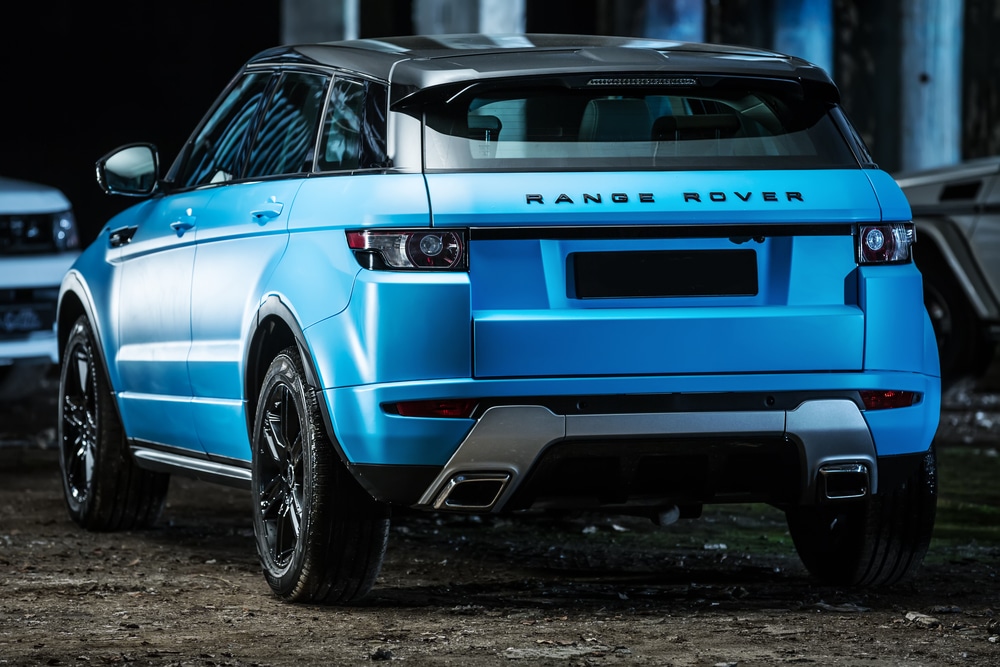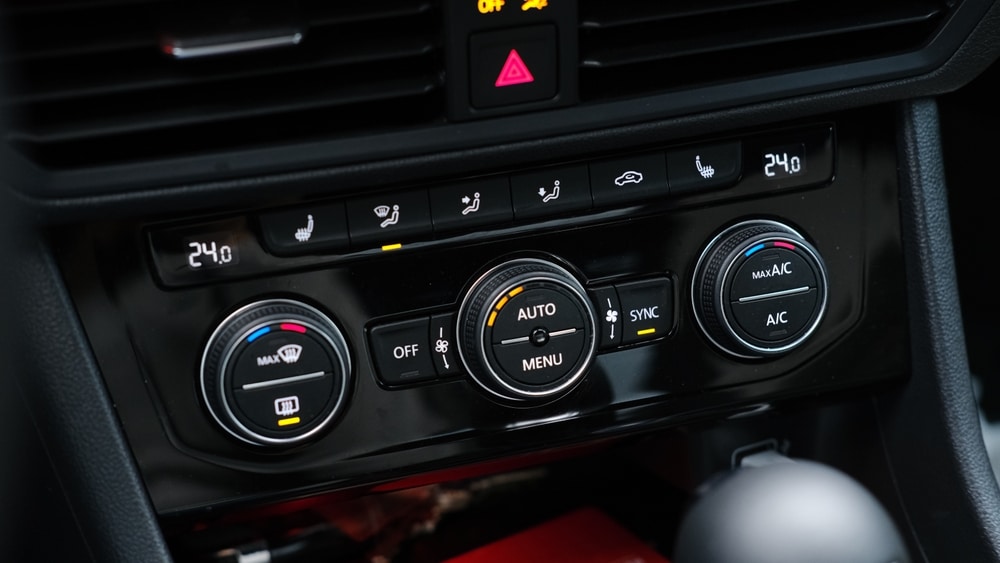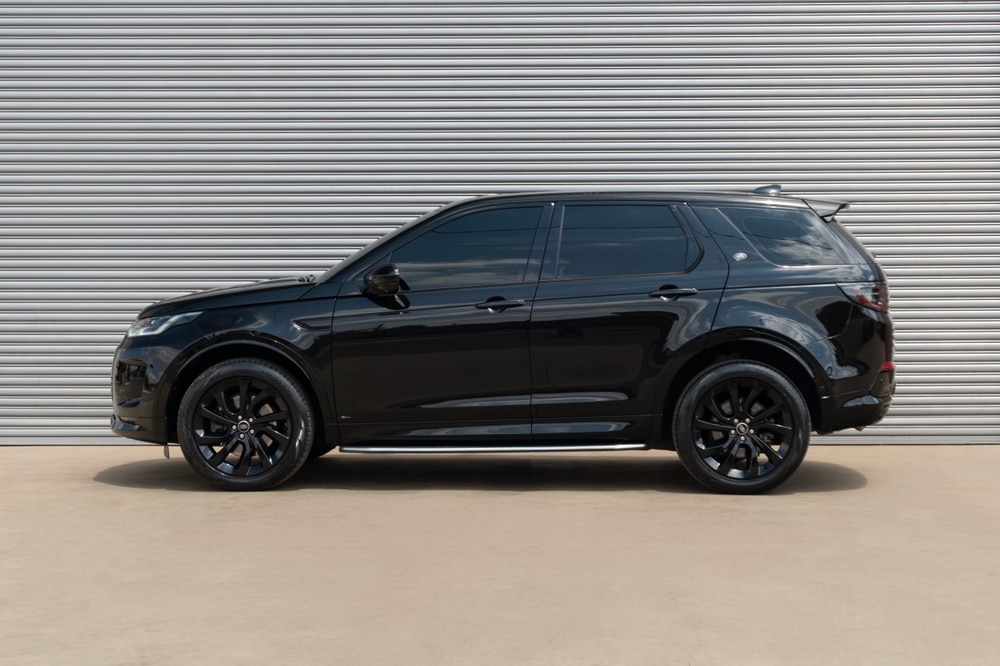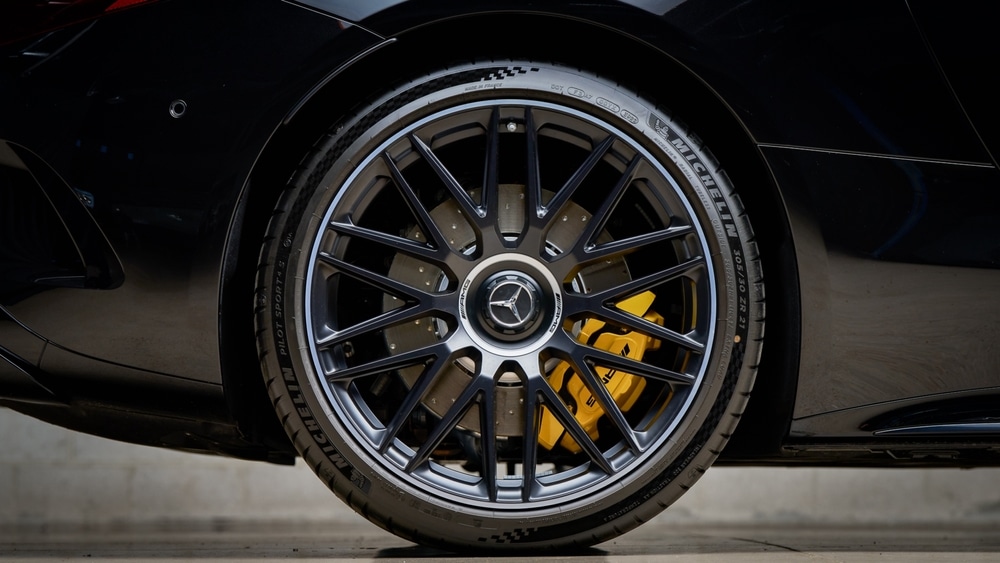Fixing Multiple Fault Codes on a Range Rover Evoque
The Range Rover brand is one of luxury, elegance, and off-road capability. Although, sometimes they can have issues that mean they enter limp mode and lights illuminate on the dashboard. Your engine is the most important part of the vehicle, and all of its parts need to be working together, otherwise, you will enter limp mode where your Range Rover is telling you something is up.
Our customer recently visited our workshop with this exact issue. Their Range Rover Evoque had entered limp mode and was displaying a low oil warning message on the dashboard.
With a team of Range Rover experts on hand to assist, Shires Garage was able to step in and identify the issue. With our 15-step diagnostic process, no stone is left unturned – we get to the root cause and fix the issue quickly.
Read on to find out more about how we repaired our customer’s Evoque.
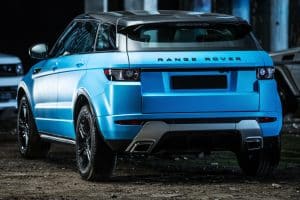
Faults We Found
As the vehicle entered our workshop, our team of Range Rover specialists stepped in straight away as they knew where to look. Not only was there a noisy rough idling engine, but our team noticed an engine management light on the dashboard, and the apparent low-oil warning message too.
This Evoque had a lot of problems, and with a lot to dig into, our team began their 15-step diagnostic procedure. Using a specialist machine to read fault codes, we soon found what was up with the engine.
Our diagnostics test produced a long list of fault codes, seven in fact. Our technicians were astonished as to what they were:
- P0341-91 Camshaft position sensor circuit malfunction
- P06BE-1E Cylinder 2 glow plug
- P0299-84 Turbo under boost
- P006A-84 Manifold absolute pressure flow correlation
- P246B-00 Vehicle conditions incorrect for regeneration
- P049C-00 EGR B excessive flow detected
- 2BAE-02 NOx Exceedance
As this is such a long list, we were surprised that the customer’s Evoque survived the journey to us!
It’s a good job they did visit, as we knew what to do next. Using the list of fault codes, combined with our decades of experience, we knew how to fix the Range Rover. To the everyday car owner, these fault codes might not mean much, but to us, they mean a great deal thanks to our specialist Range Rover team.
We performed the following tests to narrow down the problem:
- Make sure the engine’s timing is correct.
- Inspect the cam sensor for damage and functionality.
- Examine the condition of the cam lobe and see if there are any marks.
- Check the power to glow plugs to ensure enough power is delivered during use.
- Examine the electrical circuits of the glow plugs and visually check the wiring for its condition.
- Inspect the turbocharger for signs of wear or damage, both on the outside and inside.
The first test proved to our technicians that the timing was incorrect. The onboard computer uses engine timing to work out when to release fuel through the fuel injectors, as well as the best time to open the inlet and exhaust valves, and thus release the exhaust gases. A diesel engine relies on all of these components to work seamlessly together, otherwise it would simply not function.
It’s hardly a surprise that the owner had so many issues!
Moving forward, the next test showed us no issues with the cam sensor, and it wasn’t damaged either.
The cam lobe is made from cast iron, and it is precisely engineered to open and close valves at the right time to release exhaust gasses in an engine. After further inspection, the cam lobe condition was fine and was not the cause of the fault.
Glow plug power testing showed us a different story. Glow plugs help diesel engines in cold weather by heating the air in the cylinders and are a vital component that needs to work reliably at all times. While testing, our technicians discovered problems with the glow plugs. They talked to our customer and explained that the plugs needed to be replaced.
Turbochargers are also important engine components, especially in diesel engines as they harness the exhaust gasses to produce more power. The carefully designed and built blades inside the turbo need to spin at high speeds to direct air precisely into the engine. Our team found an issue with the turbo which meant that it needed to be replaced too – this was explained to our customer. Without a new turbo, there is a risk of catastrophic engine failure and a reduction in performance.
Repairing the Range Rover Evoque Engine: Step-by-Step Procedure
After uncovering the issue with the Range Rover engine components, our team of experts helped outline every repair needed to fix it and get it back on the road. We called our customer to go through every testing procedure, along with our findings and the suggested fixes.
We make sure our customer is in the loop when it comes to our findings and repairs. Shires Garage always keep you informed and ensures that you don’t have any surprises when you come to collect your fully working vehicle. We always make sure to seek approval from you before starting any work.
Our customer was very understanding and gave us the green light to perform the repairs on their Evoque. During our repairs, we only use genuine Range Rover parts or high-quality replacements and thanks to our close parts network, we can order and receive parts on the same day.
Here’s what we did:
- Swapped out the timing chain kit to fix the timing and make sure the engine ran its best.
- Changed the turbocharger to make sure the engine gets a good boost when needed, thanks to free-flowing exhaust gases.
- Put in new glow plugs to keep the Evoque running smoothly, especially during cold winters.
- Replaced the oil and oil filter to give the new timing chain the best cooling and lubrication.
We also cleaned the Diesel Particulate Filter (DPF) as it was the final issue which may have prevented the engine from running smoothly. Our technicians knew that it would be the last piece of the puzzle to ensure a healthy running engine if everything else had been addressed.
Not a lot of workshops are willing to do a DPF clean because it’s a big job that needs special knowledge and tools. Even if the DPF isn’t the main problem, some garages might think a clean is not needed. However, Shires Garage makes sure to take really good care of our customers’ vehicles.
We then needed to put everything back together and clear the fault codes. We wanted to make sure that every job was performed correctly, as the timing chain is a delicate part and needed to be installed correctly for the engine to work properly again.
After clearing the fault codes, our technicians took the vehicle out for a test drive to ensure that no further issues would arise. We were happy to report that no other fault codes appeared, and our customer could pick up their car!
Range Rover Evoque – Expertly Fixed at Shires Garage
When we faced the challenge of a troubled Range Rover Evoque in our workshop, our skilled team promptly diagnosed and addressed seven fault codes. We tackled issues ranging from faulty timing chains to non-functioning glow plugs, along with broken turbochargers, and performed a thorough oil change. To prevent future problems, we cleaned the vehicle’s Diesel Particulate Filter, ensuring optimal filtering of exhaust gasses.
Using only genuine Range Rover parts, we guarantee the highest quality repairs, leaving every customer fully satisfied and smiling when they leave our workshop. With transparent communication and better-than-dealer value, Shires Garage’s Range Rover Experts are ready to assist you. Contact us today for your next Range Rover repair!
